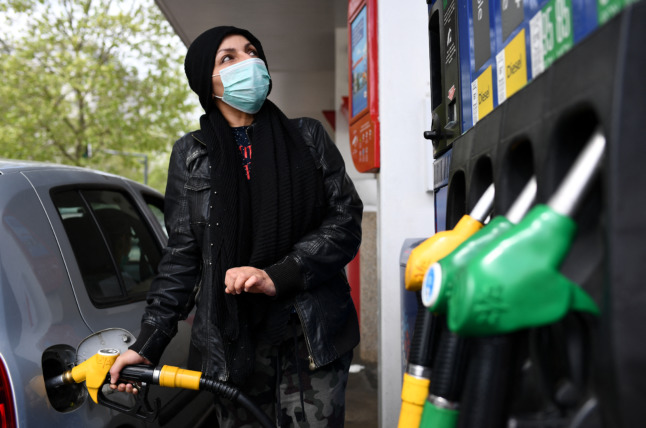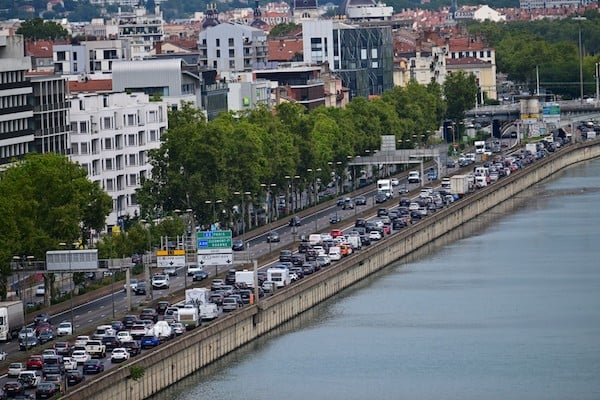After much debate within government and amongst opposition parties over how best to counter rising fuel prices, French Prime Minister Jean Castex has announced a one-off €100 payment to lower income households.
Who is eligible?
The aid is targeted at people on lower incomes, however it will still be sent to 38 million French residents – that’s six times more than receive the means-tested “energy checks” and the subsequent €100 additional grant announced in September to offset rising gas and electricity bills.
In order to qualify for the fuel subsidy, you must have a net monthly income of less than €2,000 per month – whether that’s wages, self-employed income, a pension or benefits.
It is an individual grant, so for couples where both people earn less than €2,000 per month, they will each receive €100.
Around two thirds of students will also be eligible, government spokesperson Gabriel Attal told France 2 on Friday. It will concern “students who receive a bourse (grant) and students who are financially independent of their parents”.
Although the primary aim of the subsidy is to help motorists who are struggling to pay for petrol or diesel, you will not need to own a car in order to benefit from the aid. Castex said this was the “fairest” and “most efficient” policy.
When and how will it be paid?
The Prime Minister has said the aid will be sent out automatically, so if you qualify, there is nothing you have to do but wait.
For private sector workers, it should arrive from the end of December, while fonctionnaires (public sector workers) will receive the payment in January, and self-employed, unemployed and retired people will be paid “a little bit later”.
The government has since provided more detail about how the payment will work – full details here.
In the private sector, the businesses themselves will distribute the money; self-employed people will receive it through Urssaf; for pensioners it will be through their pension fund; and job seekers will get it via Pôle Emploi.
The government is set to provide more detail in days to come on how people who are eligible but don’t receive the cheque can apply for it, and The Local has also asked about the payment method for pensioners whose pension comes from outside France.
Why?
The announcement follows steep rises in diesel and petrol prices in recent weeks. Average diesel prices hit an all-time record last week of €1.5583 a litre, while petrol was at nearly a 10-year high at €1.6567 a litre.
Various candidates for the presidential election had put forward their own solutions, including cutting fuel taxes and blocking price rises, but the government opted for a one-off payment.
READ ALSO Rising energy prices: How to save money on bills in France
Castex said this would both “bring immediate protective measures against price rises”, while also maintaining the government’s commitment to making France less dependent on fossil fuels.
The measure will cost the state €3.8 billion.
Castex added that petrol prices were not the only concern. “There is a question of inflation,” he said, explaining the decision not to limit the payment to motorists. Indeed, the cost of living has risen sharply in France, and a recent survey showed it to be the number one concern of voters ahead of April’s presidential election.



 Please whitelist us to continue reading.
Please whitelist us to continue reading.
If your income is 2000 euro a month and inflation is 5%, you need 100 euro a month to keep pace, not 100 euro a year.
If you don’t pay any tax in France (pension from UK) and your joint income is 44000 pa, does that mean we will both get 100 euros?
As I read it , if one of you is getting less than 2K a month and the other is getting more, you would get one payment – whatever the joint income might be.
Isn’t the problem with this that it will likely be based on your last avis d’ Impots based on 2020 income. Our income for 2020 exceeded the monthly figure quoted, but for 2021 it doesn’t by a long margin. It’s now we need the money, but I guess we won’t qualify.